Like hoboes on two wheels we lay our heads where we can
The nights of our rides
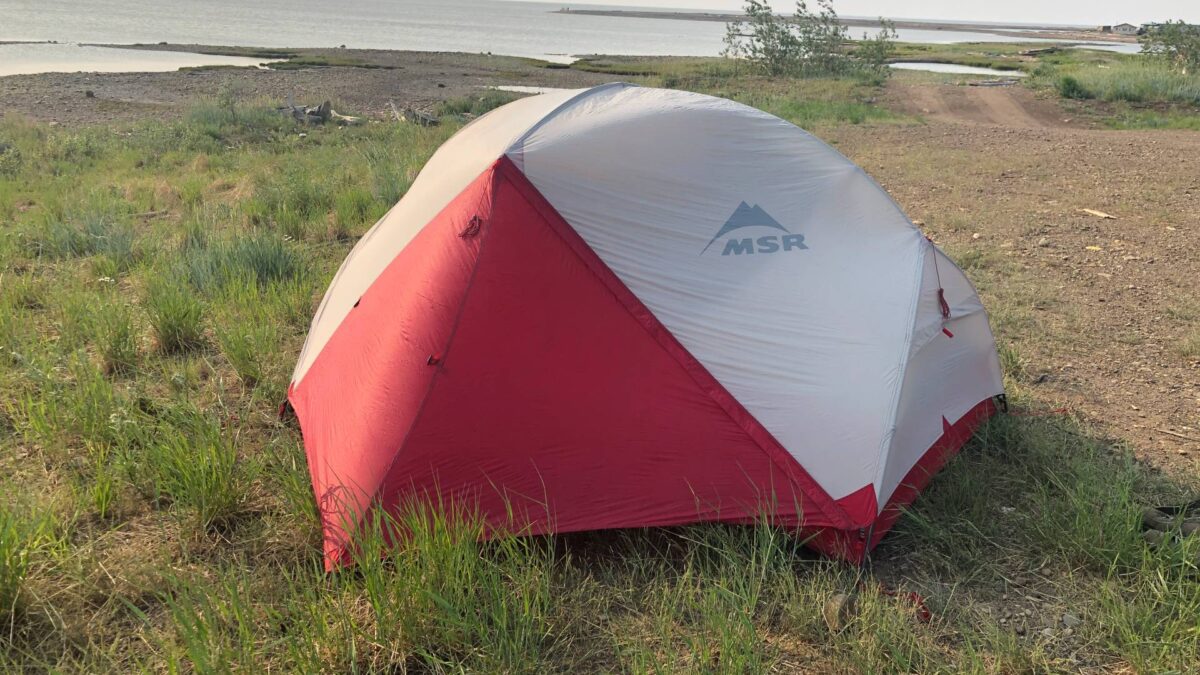 Photo by:
Tom Perlmutter
Photo by:
Tom Perlmutter
My day usually begins at 5:30. I’m slow in decamping. I struggle to get into my bike kit and struggle even more to unrig the tent. We’ve had a lot of rain so it’s often been a soggy job. Even when we’ve had glorious sun and temperate nights, the temperature drops so that dew and condensation eagerly collects on the fly vying with the rain for which can create the greatest volume of moisture.
How the day goes depends a lot on how the night went. We are camping except on rest days. For some of the riders, it seems to be the most accomplished ones, the challenge of the trip has been camping. John, from England, is a formidable cyclist. He wonders why he’s not doing his usual cycling in Portugal or France with fine little cafés and patisseries and lovely chateaus in which to spend the night. “Camping is not my favourite thing,” he says with a touch more emphasis than one expects from the proverbial British habit of understatement.
We began camping in Tuktoyaktuk on the shores of the Arctic. We reached the northern point of the continent and were very excited at the prospect of a wide open space by the ocean, a view to die for and a breeze to blow away the super nova clouds of mosquitoes. As Robert Burns put it “the plans of mice and men gang agley.” For mysterious reasons the local authorities told us we had to move away from the spectacular peninsular point to a piece of waste ground several hundred metres awy. The site turned out to be next to kennel suburbia with about twenty hounds happily baying through the night. Of course, there wasn’t any night as such. Twenty-four hour sun blazed through our thin tent walls. As we were clearing space for our tents a fork lift came trundling by with two port-a-loos for our use. We had less of a breeze, more of the mosquitoes but, at least a view of the Arctic Ocean.
A couple of days later we were overnighting in Tsiigehtchic, a village of about 190 inhabitants with a broad stretch of tall grass sweeping up to a modern gymnasium cum rec hall. The village had mowed the grass making for a comfortable set-up. The great delight was being allowed to use the indoor toilets and showers of the gymnasium. A young girl of about eight or nine biked around while her brother and a friend clambered onto the roof of a nearby building to get a bird’s eye view of the strange proceedings unfolding beneath them.
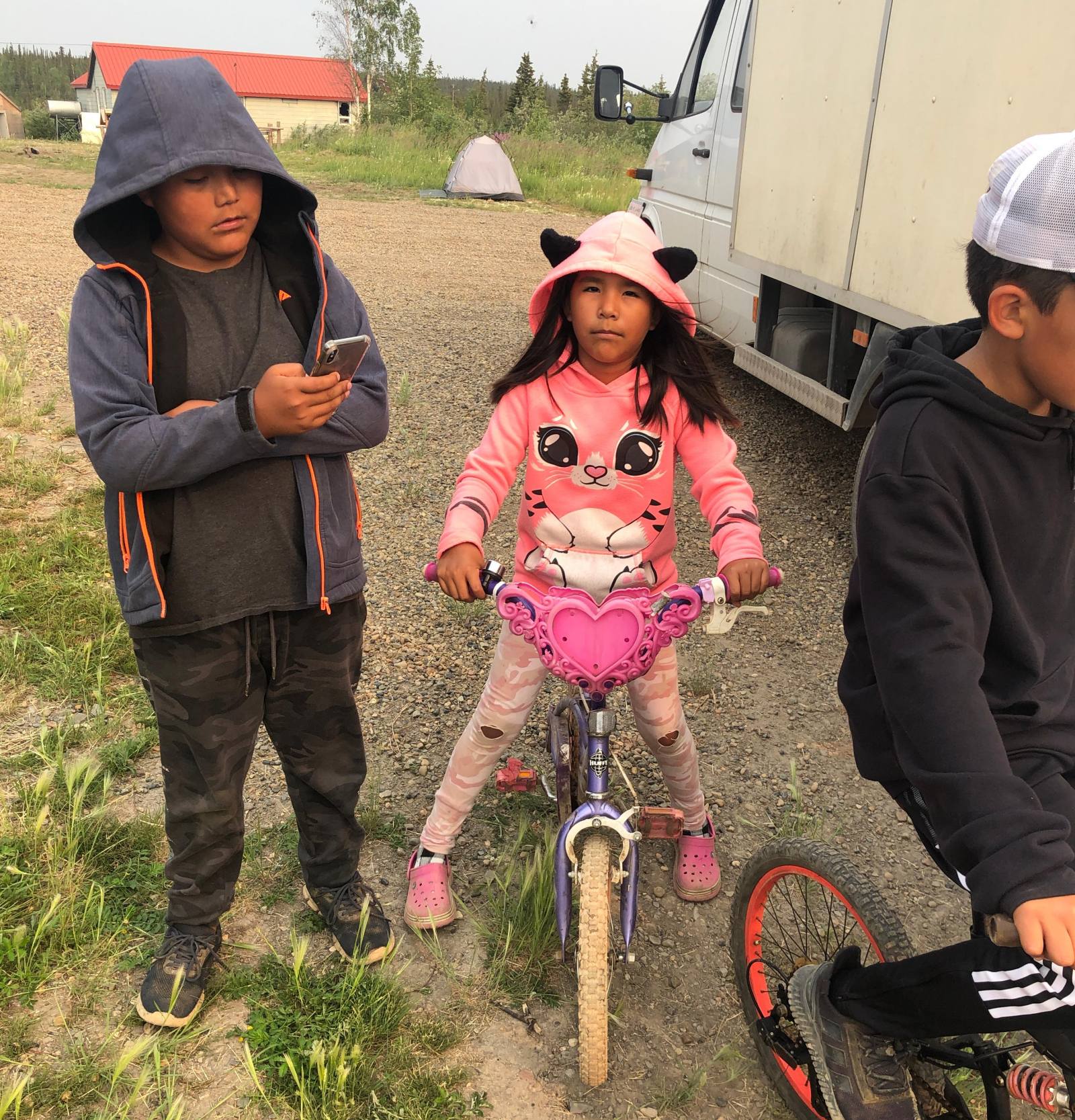
The next day we ferry across the river and ride to a park the other side of Fort McPherson. The campsite has wooden platforms and a decent shower. An RCMP officer stops by and spends an hour chatting with us. He’s originally from Rimouski, Quebec and has been in the North for about five years, first in Inuvik and now in Fort McPherson. What is his work like, I ask him. He says it’s the usual issues of conjugal violence, alcoholism, petty theft and such like. Why did he accept a northern posting. “I like the outdoor life.”
Later I spend a couple of hours chatting with Henry. He started the cycling company when he was 52 with the crazy idea of a cycling race from Cairo to Cape Town. Everybody told him that no way could it work. Just the bureaucracy of obtaining visas for cyclists from around the world would be a nightmare, never mind the dangers of lawlessness and wild animals over large sections of the route. Henry had worked in Africa. He knew the ropes and he had a way of making lasting friendships. Within a couple of months he had everything arranged.
That evening, however, he was telling me about his father. Henry is Slovakian and his father, he said, was a crazy Slovakian. His father’s “Shakespearean voice” was his instrument of choice for getting what he wanted. His father shouted and obstacles faded. Maybe that’s where Henry got some of his grit. The next morning Henry announced that he had just tested positive for Covid. “Great,” I thought.
We carry on the Dempster and three-quarters of the way to camp I am racing down a hill when my bike hits loose gravel,, the front tire judders madly and I am, quick as a flash, thrown overboard. I brush myself off, treat my scrapes and bruises as best I can, straighten the handlebar and clamber back onto the bike for the 20km to camp. Camp is a barren patch of ground by the Dempster Highway. We have the use of shovels to take care of our toilet needs. I managed to batter my right shoulder and left leg making for a very colourful display of bruises, less convenient for trying to find a position in which to sleep.
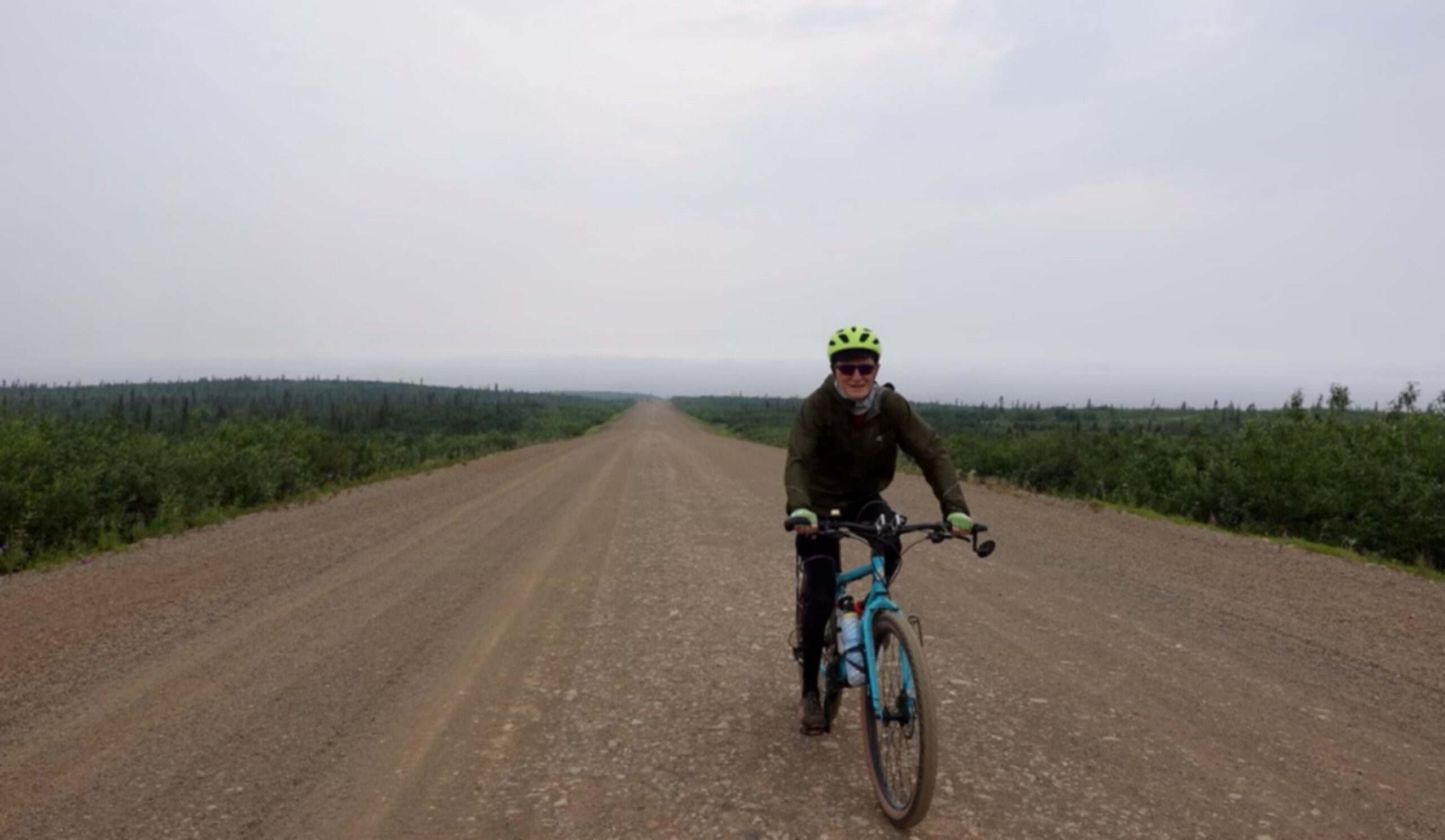
That night my throat feels particularly dry. I think I must have swallowed a lot of dust on the road. The next day I tested positive for Covid. O, Henry! That put an end to my camping for a while. After seven days of isolation in a hotel in Dawson City, I was about ready to saddle up. But I made the mistake of seeing the doctor in the local hospital, who incidentally was one of the finest physicians I encountered with an uncanny diagnostic ability. Originally from Haida Gwaii Dr James Chrones has devoted himself to a Northern practice. He said I needed to stay off the bike for a few more days.
I was back riding and camping after Whitehorse. Our camps are increasingly at motel/RV sites that set aside small stretches of scrap ground for tents. Sometimes there are toilets and showers, often it’s wet wipes and a pit toilet. There are days when it rains heavily.
As we head off to Muncho Lake we’re told that the camp site is first come, first served. We arrive to find only a few spaces. We squeeze five and six tents into a site meant for two. We’re thankful it doesn’t rain. Like every other night we gather up all our jars and tubes of ointments and toothpaste to put into the bear box. We are constantly reminded this is bear country, which, even though we have sighted them by the roadside, we tend to discount by the time we’re ready to crawl into our tents. After 120 to 150km of riding we’re too tired to think or care about bears or any other wild beast. Let them come and put me out of my misery.
There is no voice in the wilderness at Prophet River, only wet grounds and mosquitoes. We’ve hit camping bottom: a decommissioned provincial park. Our tents are set up on the abandoned tarmac, raised above the flooded verges. Some pre-dig holes for their night time needs. They issue strict no trespassing warnings to the rest of us.
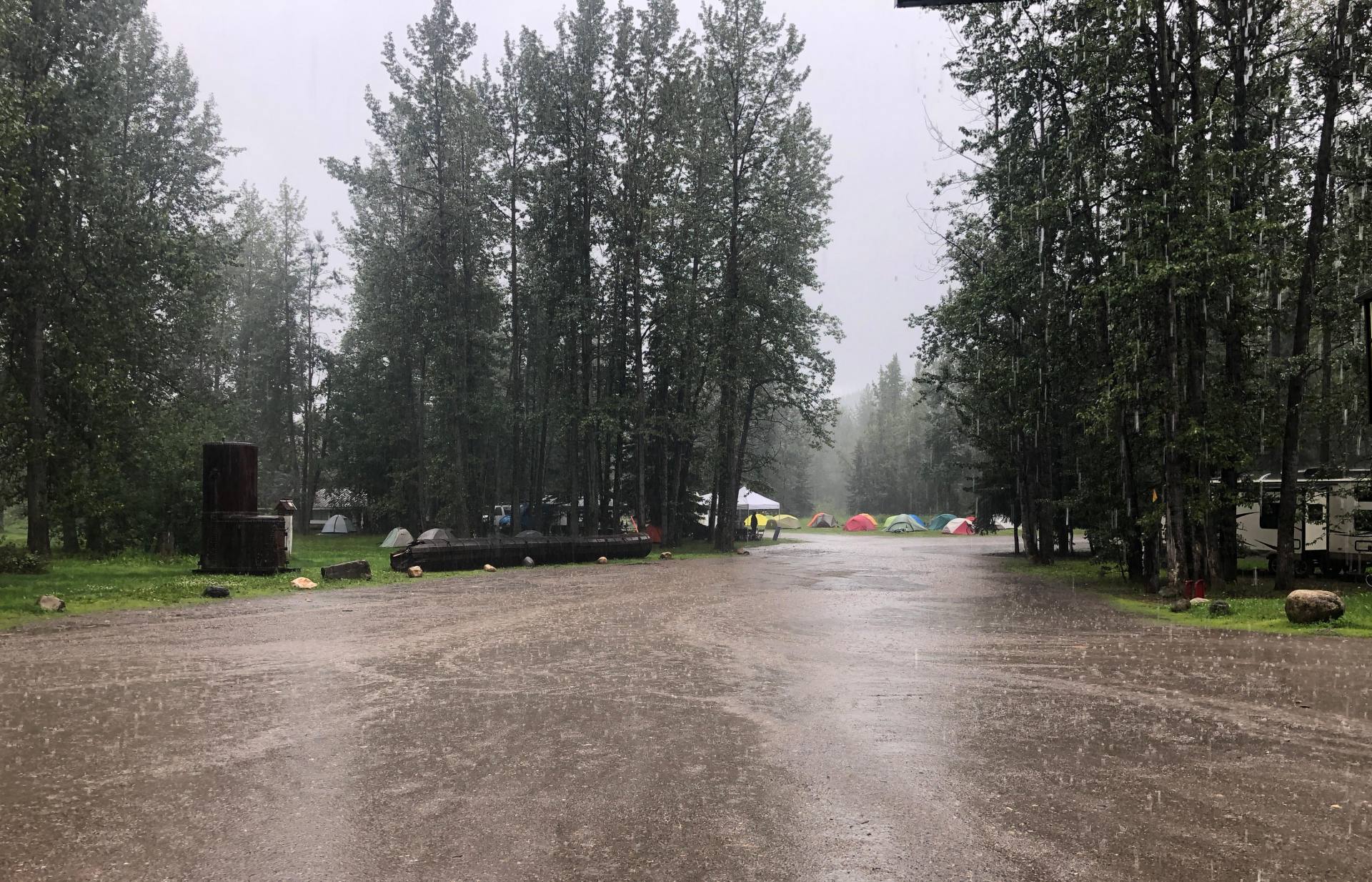
A few days later we cycle into our best camping site, south of Grand Prairie. It’s not a camping site as such. It is a broad expanse of luscious lawn on the grounds of Leroy and Ramona’s home. It overlooks Swan Lake and our hosts have opened up the rec room of their home for use of their heavenly shower.
Leroy looks like Tom Selleck’s older brother with the same thick moustache, but grey, and a broad, genial face. He is 83 but could be a decade younger. He is open and curious about who we are, where we come from, what we do. He is a retired radiologist who worked for many years at the hospital in Dawson Creek. Before retraining, he’d been a General Practitioner for nine years. The work load was tremendous as to be expected for a practice in a more isolated region of the country. He got to know the ins and outs of the country. He needed a break but didn’t want to leave a country he had grown to love. He had spotted the land on which we were now camping. He and his wife had promised themselves if it ever came on market they would snap it up. Eventually, they were able to fulfill their dream.
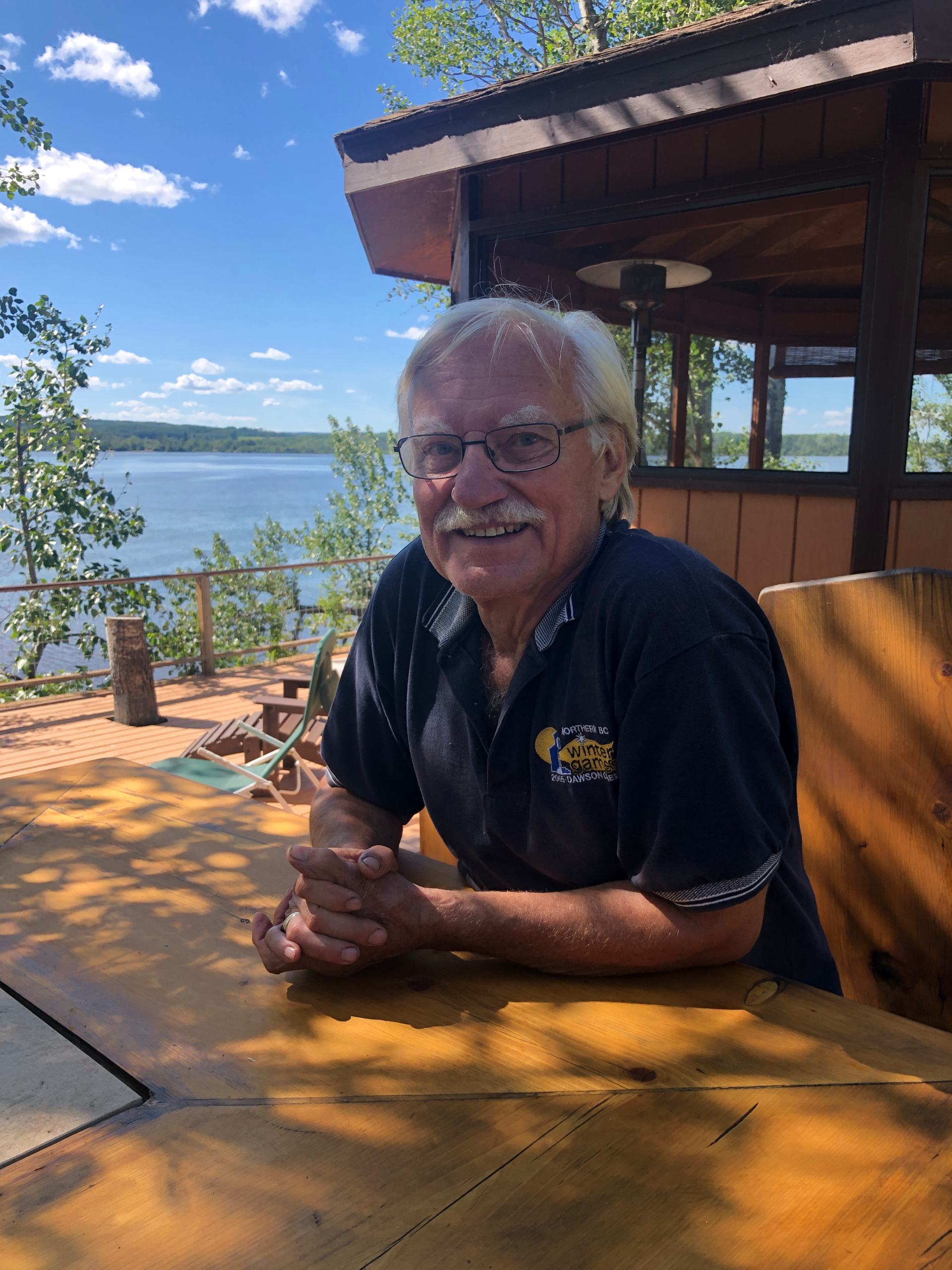
“You’re very generous,” I said to him, “allowing a group like ours to come like an invading army.” He tilted his head, looked at me for a long second and replied, “We bought this place with the idea from the very start of sharing it.” No more needed to be said. His life of service had not ended at the doors of his hospital. Everything that he and his wife were, was encapsulated in that simple sentence.
A few days later we were in the Kakwa River Campground. Peace Officer Thebault stopped by to give us a preview of road conditions ahead. Simply put: dangerous. No shoulder. Truckers and loggers speed on the two-lane 40. He stops multiple riders every day for speeding, texting and speeding, and being high among other infractions. We can expect those conditions for the next two days. Gulp is what I think and suddenly our basic, but idyllic camp site by a cooling river takes on a sinister turn.
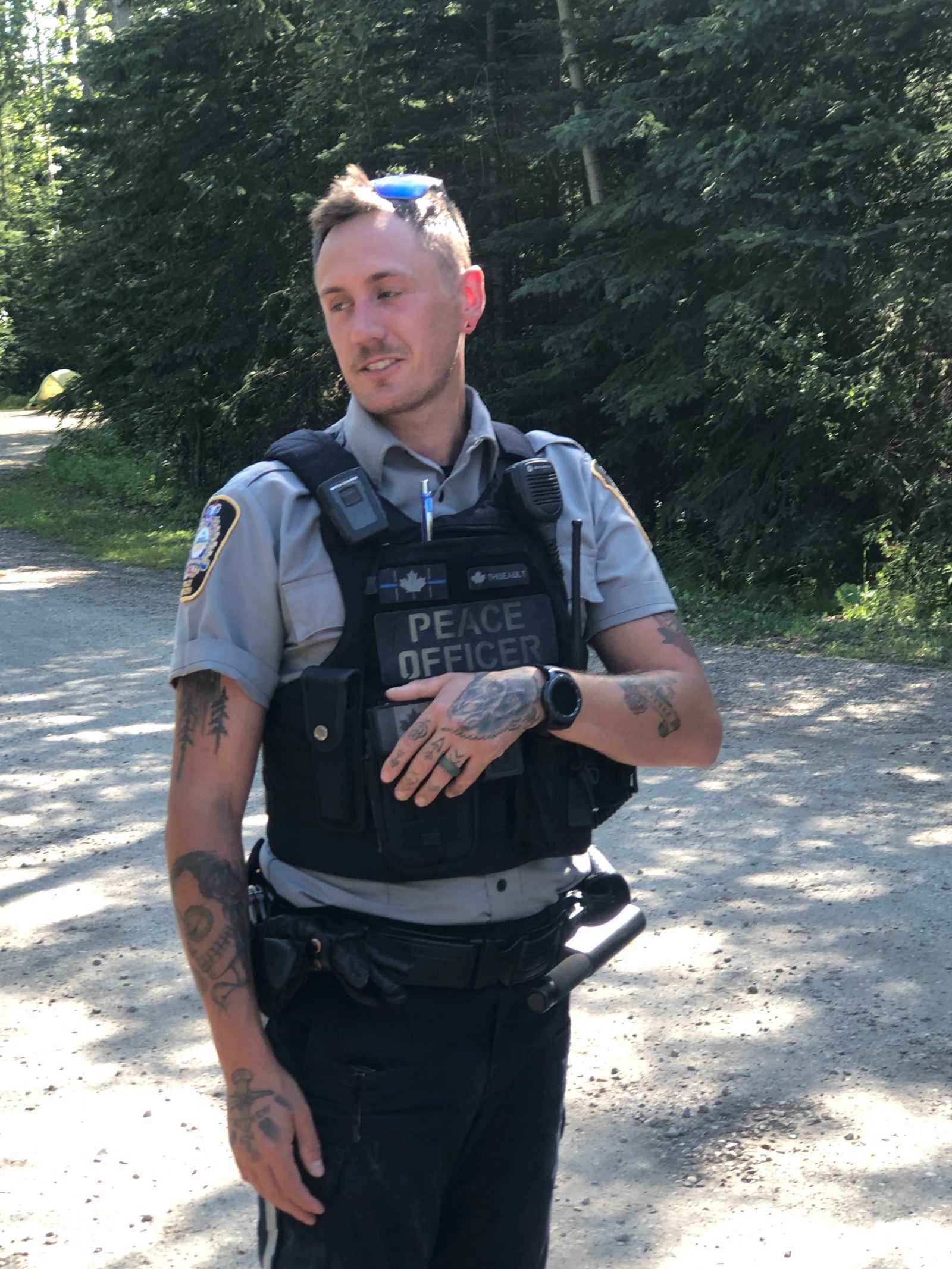
Before we know it we’re on the Icefields Parkway in Banff National Park. We have entered the land of the sublime. We set our tents up in the midst of majesty and beauty that is at the edge of incomprehensibility. Primitive loses all meaning in surroundings like this.
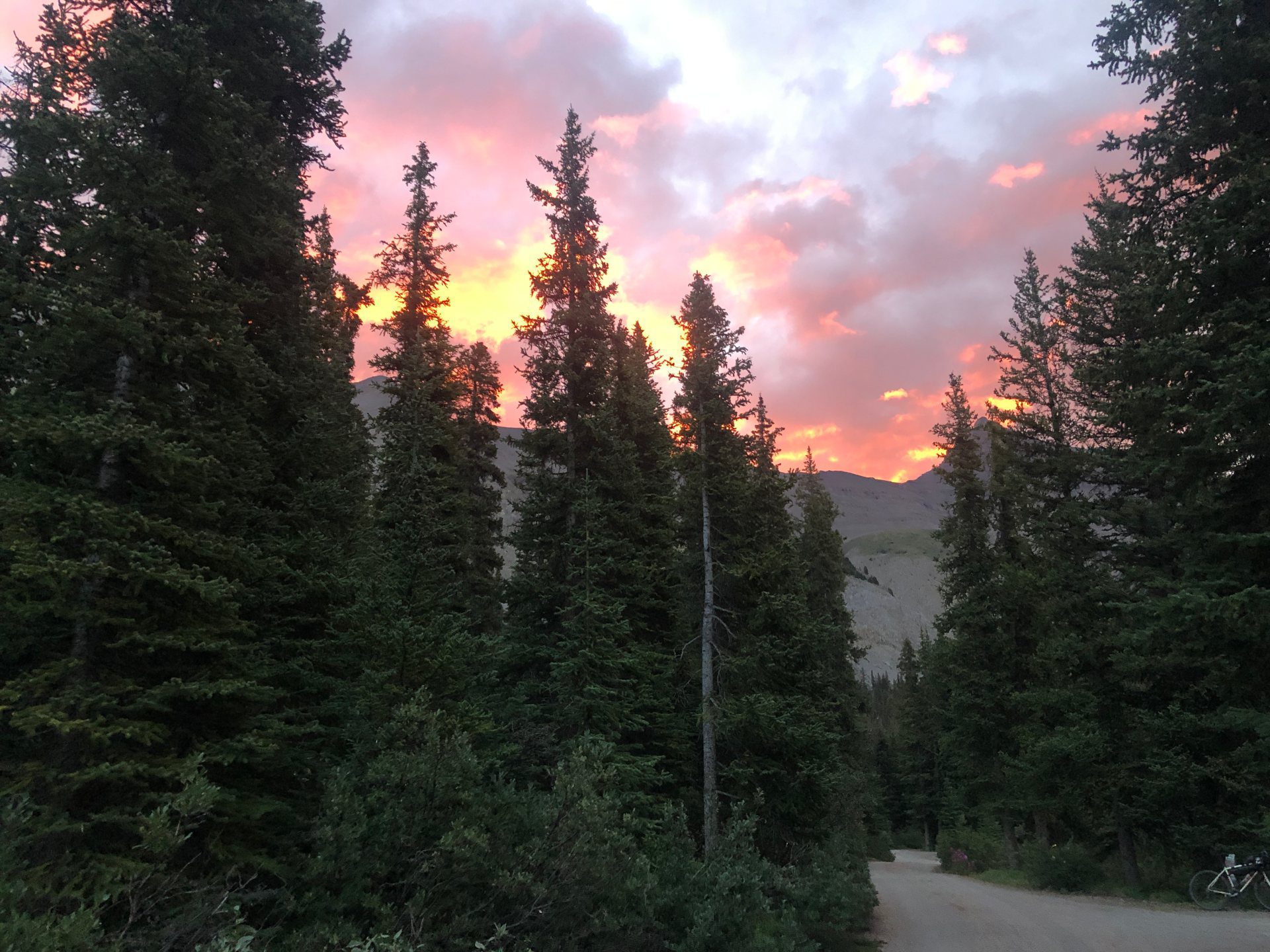
The night before we enter Banff we turn off to Mosquito Creek campsite and Hi-Mosquito Wilderness Hostel. This feels more like the budget summer camp I was hustled off to as a kid, sold to my parents as rustic and character building. That meant it was run down and the kids had to rough it if they wanted to survive. Bunk beds are the order of the day with the accompanying sounds of snores, flatulence, squeaking mattresses, overloud whispers and moaning of the upper bunkers trying to clamber down to get to the pit toilets in the middle of the night before it’s too late.
There are weeks and months of camping to come. We are becoming accustomed to what the road throws at us. We may grumble and we may marvel but it is what we have signed up for, a closeness to the lands through which we ride.
